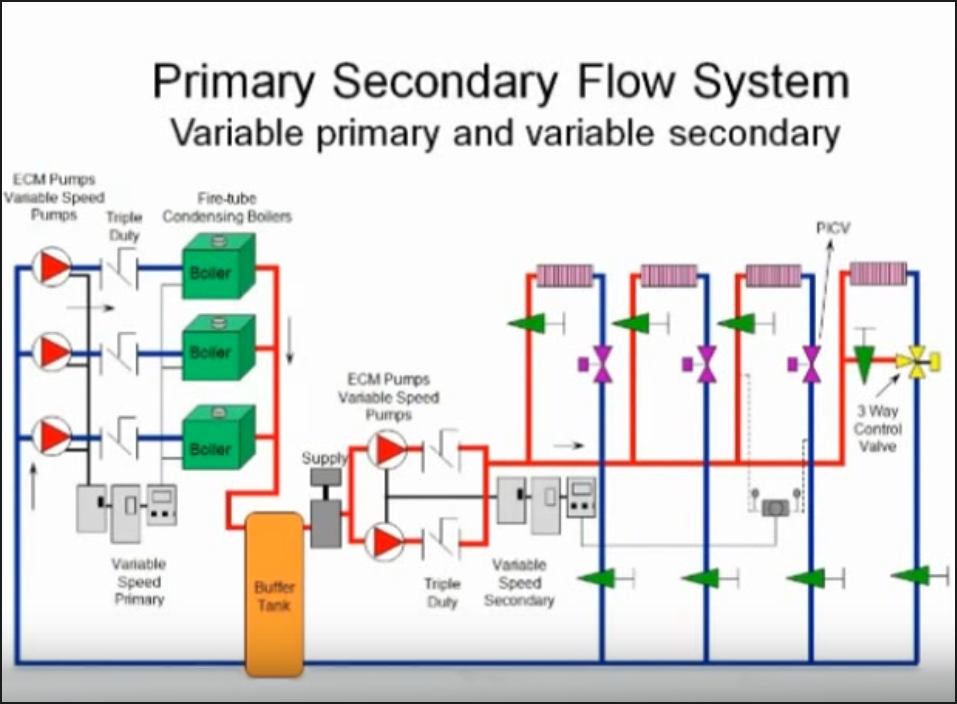Condensing boilers have made a strong case for themselves in terms of both space and energy efficiency. Of course, the latter hinges on one critical factor: the condensing boiler must condense. And if condensation is intended as an ongoing occurrence, the correct materials and equipment must be specified to withstand the harsh effects of condensation.
Read MoreCondensing boilers now dominate the new construction and replacement commercial markets. Here at JMP we estimate that as much as 90% of new boilers we sell are condensing boilers. So how did we get here and what is it about the technology that transformed the marketplace?
Read MoreIt takes approximately 1000 Btus of energy to convert one pound of water into vapor. Think of that as the price you pay as part of the combustion process in a typical non-condensing hydronic boiler. That’s a good starting place for this next series on Energy Efficient Hot Water Boiler Plant Design.
Read MoreJMP is excited to announce that we now represent Baltimore Aircoil Company (BAC) in Georgia! This means that companies that purchase, install, or specify commercial HVAC systems in Georgia finally have a single source for all their hydronic equipment needs, from cooling towers to pumps
Read MoreThe Department of Energy (DOE) released a statement last month saying that ANSI/ASHRAE/IES Standard 90.1 - 2010 Energy Standard for Buildings Except Low-Rise Residential Buildings offers 8.5% source energy savings and 7.6% site energy savings over the 2010 version. That’s enough to warrant another round of changes to commercial building codes. State governments now officially have until September 26, 2016....
Read MoreJMP Equipment Company
Search
Series
Check Out Our Videos!
Get Updates from Us
Visit our Contact Page and let us know what information you'd like to receive.
Contact About Videos Sign Me Up
Powered by Squarespace


